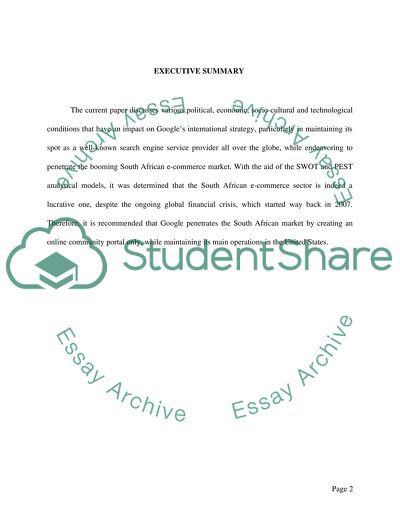Cite this document
(“Business in South Africa Coursework Example | Topics and Well Written Essays - 4250 words”, n.d.)
Retrieved from https://studentshare.org/marketing/1425477-business-in-south-africa
Retrieved from https://studentshare.org/marketing/1425477-business-in-south-africa
(Business in South Africa Coursework Example | Topics and Well Written Essays - 4250 Words)
https://studentshare.org/marketing/1425477-business-in-south-africa.
https://studentshare.org/marketing/1425477-business-in-south-africa.
“Business in South Africa Coursework Example | Topics and Well Written Essays - 4250 Words”, n.d. https://studentshare.org/marketing/1425477-business-in-south-africa.


